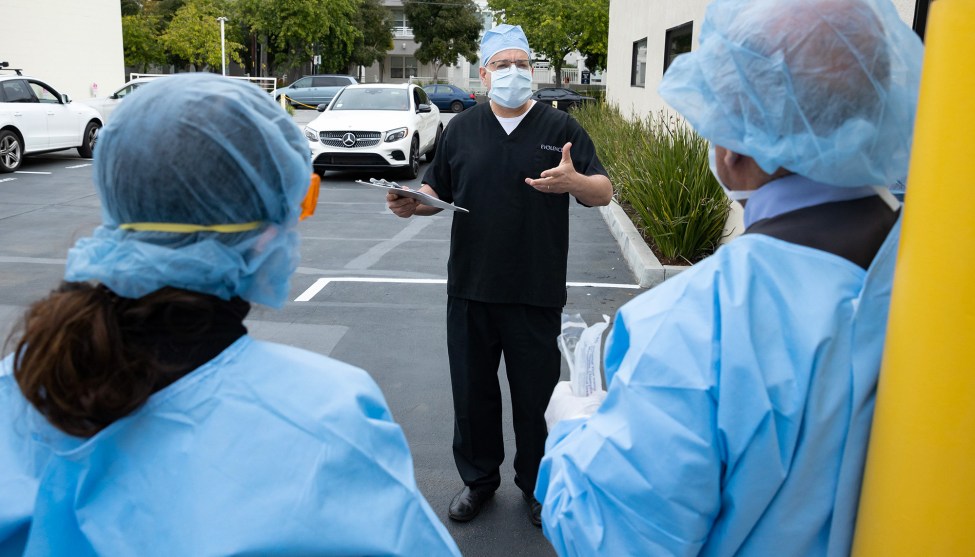
Chris Hardy/ZUMA
We are searching the world for surgical masks, ventilators, protective clothing, and anything else that might help us handle the coronavirus:
State Dept “asked all bureaus to report on what foreign countries would be able to sell “critical medical supplies and equipment” to the United States…“the United States could seek to purchase many of these items in the hundreds of millions…” https://t.co/hIcTOXkaX1
— Alexander Marquardt (@MarquardtA) March 24, 2020
Taiwan has agreed to provide us with 100,000 masks per week—less than one percent of their output of 70 million—but not quite yet:
Under the joint statement signed on March 18 by Wu and Brent Christensen, director of the American Institute in Taiwan, the U.S. promised to reserve raw materials for 300,000 medical protective suits for Taiwan, while Taiwan agreed to provide 100,000 medical face masks per week to the U.S. when its production capacity has stabilized….As for when Taiwan will begin to provide the U.S. with the promised 100,000 masks per week, Wu said the two sides are still discussing details of the matter.
Taiwan does not actually need 70 million surgical masks per week. It has a population of 23 million and about 200 confirmed cases of coronavirus infection. So why are they unwilling to provide more masks to their most critical military ally at a time when we’re facing a brutal shortfall that could cost tens of thousands of lives?
Apparently it’s because Taiwan wants every man, woman, and child on the island to have a steady supply of masks. It’s hard to fault them too much for this, given their prodigious preparation for the coronavirus pandemic, which started as soon as they first heard about it in early January. Part of that planning included an emergency ramp-up of mask production, and obviously they did that mainly to satisfy their own needs.
Still, one reason for our mask shortage is because China doesn’t want to export them to us, and our support of Taiwan has always been a sore spot for them. In other words, we’re paying a big price for supporting Taiwan, and it’s a little surprising that they aren’t willing to help us out a little more quickly and generously in return. I wonder if the dealmaker-in-chief has any idea what’s going on here?
















